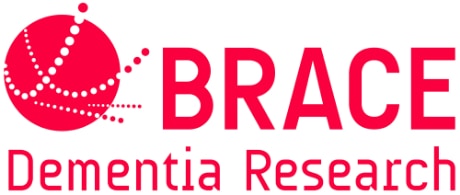Prof Yoav Ben-Shlomo - University of Bristol
PhD: 2016 - 2019
Using in-home sensors to predict Alzheimer’s disease and monitor treatment (Pilot Study)
See glossary at bottom of page for definition of underlined words.
Summary
One of the main challenges of dementia research is the lack of a diagnostic tool for the early detection of the disease. Most of the current diagnostic tests are not 100% reliable and are only able to detect the disease once permanent cellular damage has taken place. This project seeks to combat this using new SPHERE (Sensor Platform for HEalthcare in a Residential Environment) technology. Participants with cognitive decline will be monitored at home using SPHERE sensors and undergo tests to probe the areas of the brain known to be affected in Alzheimer’s disease. This coupled with state-of-the-art structural imaging techniques (MRI and PET) may provide preliminary data for a new diagnostic test for the treatment of dementia.
What do we already know?
Alzheimer’s disease (AD), Vascular Dementia and mixed dementia account for 89% of cases of dementia, and annual UK dementia healthcare costs are £4.3 billion. Although there are several treatments available, these have marginal benefit and only slow disease progression, not curing the underlying neurological disorder. This is because treatment is often started too late in the disease progress, and so the development of effective biomarkers to detect and monitor Alzheimer’s disease in its early stages is a heavy focus of dementia research. Therefore the focus of this project is to use unique new SPHERE technology to develop non-invasive, accurate, early diagnosis of the commonest type of dementia (AD) and sensitive disease monitoring that is meaningful in terms of day-to-day function.
What is this group trying to find out?
The Bristol-based SPHERE (Sensor Platform for HEalthcare in a Residential Environment) is an engineering project using both wearable and home-based sensors to detect and prevent a wide range of medical conditions through monitoring activity in the home (e.g. predicting falls and detecting strokes so that help may be summoned). The SPHERE project is an untapped opportunity to enhance dementia research with the potential to improve early diagnosis through in-home monitoring of natural behaviour to distinguish presence and subtype of dementia. In particular, Prof. Ben-Shlomo’s group aim to identify behavioural signatures that can distinguish between early stage dementia and other disorders such as vascular dementia and Functional Cognitive Disorder (FCD – a mistaken belief that you are developing Alzheimer’s disease). Moreover, the group wants to find out whether these signatures of early stage Alzheimer’s disease are sensitive to drug therapy.
How do they do this?
Prof. Ben-Shlomo’s group will recruit participants with cognitive decline but no dementia to the SPHERE project, as well as the partners/carers as controls. The houses of participants would have SPHERE sensors installed and the group will monitor naturalistic behaviour plus add in some “real world” cognitive tasks to probe cognitive domains known to be affected early in Alzheimer’s disease (e.g. long term memory). Participants would all also undergo state-of-the-art structural and molecular imaging (MRI and amyloid PET) to define their disease subtype as precisely as possible using the current gold standard.
To test whether the signatures are sensitive to treatment, individuals newly diagnosed with AD would be recruited and would be recorded for one month prior to starting standard Alzheimer’s disease medication and then for another month when they were on the drug. Changes in behavioural SPHERE signatures would be compared to changes detected in standard neuropsychological tests.
Why is it important?
The initial results would form the preliminary data for a much larger trial. The eventual outcome would be a new, non-invasive diagnostic tool for early dementia and a sensitive technique for disease monitoring.
Glossary
Neurological Disorder – A disorder that effects the central nervous system (brain and spinal cord).
Biomarker – Biological molecule that can be detected and measured in parts of the body, such as the blood.
Drug Therapy – The treatment of diseases using a pharmaceutical drug.
Cognitive – Relating to cognition - the mental process of knowing, including aspects such as awareness, perception, reasoning, and judgement.
MRI (Magnetic Resonance Imaging) – A scanning technique which provides an image of the soft tissue in the body using magnet and radio waves.
PET (Positron Emission Tomography) – A scanning technique which can be used to produce a three-dimensional image that reflects the chemical activity of the brain.
Neuropsychological tests – A test designed to quantify behavioural changes caused by a brain disorder.
Further information
Please click here for more information about the work of Prof Yoav Ben-Shlomo.
Share this page




